What is the right diet?
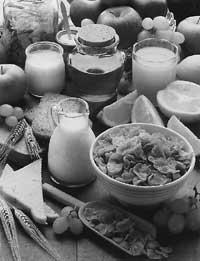
In this same magazine there are dietitians who give us healthy tips in each issue. But this time, thinking that my compañeras Ane Miren and Arantza are going to forgive me my courage, I will start advising myself on this slippery topic and so related to everyone's tastes and hobbies.
We insist that the “Mediterranean diet” is the most appropriate and that if we change slightly the ways of eating the Basques, the traditional food would be quite close to the ideal. Is it true? What should we change?
Before saying anything, let us clarify that there are no fixed rules to determine the amount of food each person should eat throughout the day, since each person has different needs. The calories to be consumed daily among people of the same age, sex, weight and height would vary depending on the activity of each person, physical expenditure and general health.
After protecting the back with this introduction, let us analyze the substances that we should daily supply to our body according to the Mediterranean diet.
Proteins
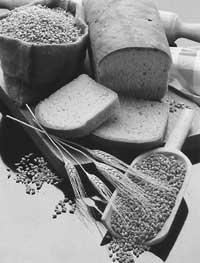
If they are not ingested in the necessary amount, physical and mental development can be affected and the access of the body to certain diseases would be facilitated. Proteins are found mainly in meat, fish, eggs, milk and derivatives, and in green beans and peas.
Fats and lipids
They are important sources of energy, but their excessive use can mean weight gain, since they provide many calories and few nutrients to the body. They also make digestion slower and heavier, as fats make food stay longer in the stomach. Body-friendly fats are found in milk, vegetable oils (mainly olive oil) and blue fish fats (sardines and herring, for example), which help regulate cholesterol.
Carbohydrates
They are essential in daily activity (only to work, move and breathe). They are found in bread, corn, pasta and cereals, rice and all sweet foods. Excess sugars — and carbohydrates are formed with sugars and starches — become fat.
Vitamins
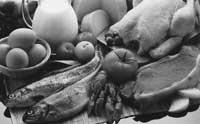
Our body cannot synthesize vitamins and therefore must take them through food. Vitamins are involved in important processes such as bone formation, the synthesis of red blood cells and various hormones or the strengthening of defenses. Its excess is as bad as ingesting little vitamin. While a lack of vitamins causes diseases such as scurvy, anemia, or rickets, hypervitamization can have serious consequences. There are a variety of vitamins, but the most important ones are found in green leafy vegetables, liver, egg yolk, dairy, meat, fish, fruit and nuts.
Minerals
The most important are calcium, iodine, iron, phosphorus, potassium and sodium. Calcium and phosphorus are essential for bones and teeth and are found in milk, cheese, vegetables and fish preserves. Iodine, potassium, and sodium are found in the table salt we consume daily and are necessary for the thyroid gland that controls growth. Finally, iron is found mainly in liver, meats, nuts and legumes.
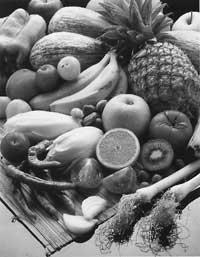
Mediterranean food is increasingly followed, but physical problems are still detected that can be considered as a result of poor nutrition. However, the disorders that can cause malnutrition are of all kinds, from one extreme (for example, those that can occur in impoverished societies that cannot eat properly) to the other extreme (for example, excesses).
In Western societies, more and more obese people are derived from excessive eating who ingest many more calories than necessary. And obesity, diseases such as diabetes, hypertension, gout, myocardial infarction, etc. increases the risk of suffering.
Therefore, readers, if they want some golden rules, can easily fill them here.
- Before buying and eating a food, ask us if there is no alternative.
- Eat everything.
- Keep your weight within healthy measures.
- Choose a low-fat diet.
- Eat plenty of fruits, vegetables, and cereals.
- Watch out for sugar and fat consumption.
Some tips to eat better
- The fruit keeps its fiber content if not bleached, but beware, before consuming it must be cleaned well.
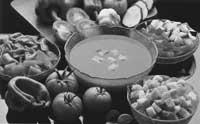 We insist that the “Mediterranean diet” is the most appropriate and that if we change slightly the ways of eating the Basques, the traditional food would be quite close to the ideal. Is it true? What should we change? In any case, let us clarify that there are no fixed rules to determine the amount of food that each person should eat throughout the day, since each person has different needs.
We insist that the “Mediterranean diet” is the most appropriate and that if we change slightly the ways of eating the Basques, the traditional food would be quite close to the ideal. Is it true? What should we change? In any case, let us clarify that there are no fixed rules to determine the amount of food that each person should eat throughout the day, since each person has different needs. - The ideal place to store vegetables is the fridge area. If you put it in plastic bags do not close the bag and make a few holes.
- Vegetables should be cooked in few waters and preferably in steam and in a short time. The cooking water used is a good source of vitamins that can be used to cook other foods.
- Legumes (lentils, chickpeas, green beans, etc.) should not be mixed with fats such as chorizos or morcillas. It is recommended to eat as main meal a week.
- Whole grains (bread, rice, pasta...) are better because they prevent constipation and inflammation of the intestine.
- When buying fish, choose the one with bright eyes and red grilled. If you have suspicious smell do not buy it.
- If possible, if olive oil is used and fried, it will not be used more than twice.





